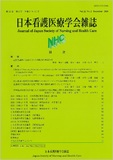Japanese
English
- 有料閲覧
- Abstract 文献概要
- 参考文献 Reference
要 旨
目的:学童保育指導員を対象にした聞き取り調査の結果を基に、学童保育場面における児童虐待の発見徴候とその対応に関する教育内容を作成し、研修会を実施したので、その有用性を検証した。
方法:対象は学童保育指導員129名であり、児童虐待の発見徴候とその対応に関する教育を行い、その前後で児童虐待の発見徴候に関する認識調査を行った。調査は、研修会を実施する「教育介入前」と、研修会が終了した後の10か月目の「教育介入後」の2回実施し、両群の結果を比較検討し、児童虐待に関する教育内容の有用性を検証した。教育内容は「被害児童の心身の行動特徴」「身体の清潔」「身体の状態」「異常な食行動」「衣類の状態」「加害者の行動特徴」、及び「指導員の対応」であった。
結果:有効回答率は「教育介入前」は129名中100名(77.5%)、「教育介入後」は92名中81名(88.0%)であり、両群とも教育介入前後の対象者の属性及び児童虐待の発見の有無に有意差はなかった。児童虐待の発見徴候に関する認識調査は、児童虐待発見徴候の認識総和得点の有意差はなかったが、「笑わなくなった」「食べ物に凄く執着する」(P<0.01)、「洗髪・洗顔ができていない」「服や靴に穴がある」「表情が乏しい、無表情である」「指導員の手や服を持って離さない」「褒めたり・褒められたりが苦手」(P<0.05)の7項目は研修後に有意に高くなった。しかし、児童虐待発見時の対応については変わりがなかった。
Purpose: Although recognition of child abuse has been pointed out as an urgent issue for teachers, after-school instructors have not been provided with sufficient opportunities to learn about child abuse signs in an integrated manner.
Therefore, based on the results of interviews involving after-school instructors, we developed an educational program about the recognition of signs of child abuse in after-school child-care settings, and used it in workshops. This study, examined its effectiveness.
Methods: Subjects were 129 after-school instructors, who participated in educational workshops on recognition of signs of child abuse (n = 129). A before and after design was used to collect data before and after the educational intervention. The educational content included: “physical and emotional characteristics and behaviors of abused children”, “personal hygiene”, “physical status”, “abnormal eating behavior”, “cleanliness of clothes”, and “behavioral characteristics of abusers”. A questionnaire was conducted twice to identify the instructors' awareness towards the characteristics of abused children; the first questionnaire was administered before the workshop and the second one 10 months later. Results obtained before and after the intervention were compared.
Results: The response rate was 77.5% (n = 108) and 88.0% (n = 81), for the before and after collection data, respectively. No significant difference was observed in the background of participants neither in the total score of awareness of early signs of child abuse before the workshop. However, after the workshop there was a marked difference in the score of child abuse signs recognition and awareness of physical and emotional characteristics and behaviors of abused children such as “no laughing”, “obsessing over food”, (P < 0.01), “dirty face and hair”, “holes in shoes and clothing”, “absence of facial emotion expressions”, “clinging to instructors” and “inability to compliment others or to accept compliments” (P < 0.05). Recognition of these 7 child abuse signs was significantly higher after the workshop. However, there were no changes in items related to responding to suspected child abuse.
Copyright © 2020, Japan Society of Nursing and Health Care All rights reserved.


